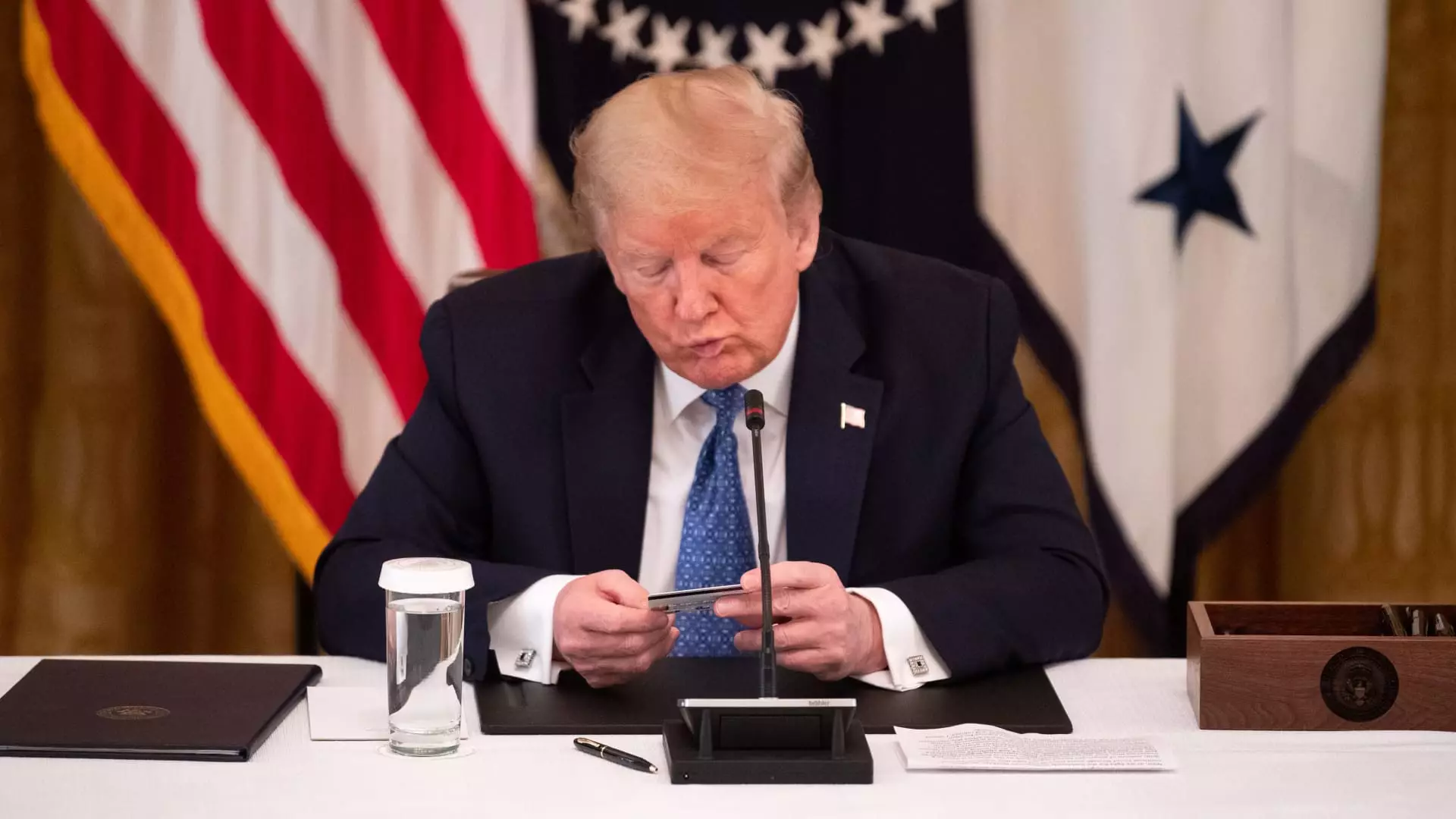The intersection of politics and cryptocurrency is often fertile ground for both opportunity and controversy. Donald Trump’s recent foray into the digital currency space through World Liberty Financial (WLF) is a case in point, as its launch has been marred by technical difficulties and underwhelming investor engagement. This article delves into the implications of these early struggles for Trump’s crypto ambitions and the broader crypto market landscape.
Technical Failures Haunt the Launch
World Liberty Financial set out to establish itself as an ambitious new player in the crypto banking realm. Aspiring to raise funds through a token sale, the project boasted a significant initial interest with co-founder Zachary Folkman claiming that “well over 100,000 people” had placed themselves on a whitelist for investment opportunities. However, the launch coincided with persistent website outages, leading to missed opportunities for potential investors and severely limiting sales—an unfortunate turn for a venture designed to flourish in the digital age. Such technical hiccups not only hindered transaction capabilities but also raised questions about the project’s readiness and reliability.
Over the course of the token sale, only around 4,300 unique wallet addresses held the token—a figure that highlights the limited response from the anticipated pool of investors. This translated to a mere 4% participation rate from those who expressed interest, suggesting that the enthusiasm surrounding the project may not have been entirely well-founded. Despite the claims of WLF selling over 532 million tokens at a price of 15 cents each, these figures constitute less than 3% of a staggering 20 billion tokens made available for public purchase.
The timing of WLF’s launch proves particularly critical, given that the backdrop involves Trump’s candidacy in the upcoming presidential election. With only weeks remaining, a problematic rollout could exacerbate existing skepticism regarding the Trump family’s investment ventures. While they have promoted this project since August, branding it as “The DeFiant Ones”—a clever nod to decentralized finance (DeFi)—the inconsistency observed in the launch may undermine their credibility in the emerging crypto landscape.
The project’s roadmap reflects ambition with plans to raise $300 million at a valuation of $1.5 billion, yet how this goal will be achieved with ongoing technical issues remains a significant concern. Folkman’s history and association with previous ventures must also be weighed against the mounting scrutiny facing this new initiative.
World Liberty Financial’s proposed structure involves offering tokens under Regulation D, a pathway that allows ventures to procure funds without the rigorous requirements of registering securities with the Securities and Exchange Commission (SEC). This regulatory method, aimed primarily at accredited investors, limits broader participation—potentially dampening investor enthusiasm given that such criteria define accredited individuals as those possessing a net worth exceeding $1 million.
In the absence of a formal white paper or a comprehensive business plan, prospective investors are left in the dark about the full scope of WLF’s offerings. The promise of voting rights within the yet-to-launch platform raises more questions than it answers, emphasizing a lack of transparency that could further deter potential backers.
Broader Implications for Trump-Related Investments
Moreover, Trump’s related business interests were also experiencing turbulence on launch day, as shares in Trump Media & Technology Group—the parent entity of the controversial social media platform Truth Social—plummeted nearly 10% following a trading halt amid erratic price conditions. This may signify broader market anxieties surrounding Trump-affiliated ventures, which are increasingly viewed through a lens of skepticism.
World Liberty Financial’s rocky start serves as a reminder that the convergence of politics and innovativeness does not always guarantee success. As the project continues to navigate these early hurdles, the long-term viability of Trump’s crypto ambitions remains uncertain, setting the stage for ongoing scrutiny from both investors and regulatory watchers alike in a rapidly evolving digital economy.

